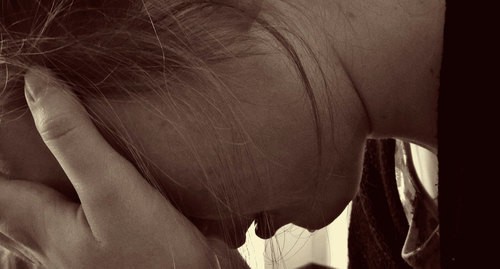
07 July 2020, 11:09
Practice of domestic violence in Chechnya is contrary to norms of Islam and Adats
The society is trying to hide the practice of aggressive, immoral behaviour of a male in a Chechen family, which actually does not correspond to Adats, the experts interviewed by the "Caucasian Knot" believe.
The "Caucasian Knot" reported that on June 12, Madina, a 23-year-old mother of three children, died in a house of her husband and his parents. In contradiction to Islamic traditions, the woman was buried at night. After social networks disseminated reports that the young woman had fallen victim to domestic violence, her mother succeeded in seeking exhumation of her daughter's body and attended the procedure. Without waiting for the results of the forensic examination, the leader of Chechnya met the mother and the husband of the deceased woman, as well as her other relatives. The mother of the deceased young woman apologized for the statement about the violent death of her daughter.
Libkhan Bazaeva, the head of the NGO "Women for Development", believes that the situation with domestic violence in Chechnya is aggravated by the fact that in the society, both in the Caucasus and in Russia as a whole, people don't want to bring their family problems out into the public.
"Unfortunately, this is always for rapists' benefits. Both in religion and in traditions there are very strong arguments against family violence, but we rely on them weakly," Ms Bazaeva said.
Despite the fact that women in the Caucasus still are talking about the problem of domestic violence, in Chechnya they may less likely rely on their relatives' support, Svetlana Anokhina, an activist and the editor of the "Daptar" magazine, has stated.
"This problem is acute everywhere, but in Chechnya – more than in other regions, because everything is more acute there. Since Ramzan [Kadyrov] is sheltering everything, this problem is not recognized at all, and if it is, then it's hidden," Ms Anokhina told the "Caucasian Knot".
"The public consciousness wouldn't accept and hear those practices of aggressive, immoral behaviour of a male in a Chechen family that are actually contrary to moral principles of Adats," said a sociologist, who preferred to remain anonymous. According to his version, violence against a weak, obviously defenceless person, who cannot adequately answer the rapist, was considered extremely obscene in the norms of Adats. "Therefore, the public morality is trying to hide, silence it, by pretending that 'this is not at all what you thought'," he told the "Caucasian Knot" correspondent.
This article was originally published on the Russian page of 24/7 Internet agency ‘Caucasian Knot’ on July 7, 2020 at 06:05 am MSK. To access the full text of the article, click here.
Author: Magomed Tuayev Source: CK correspondent




